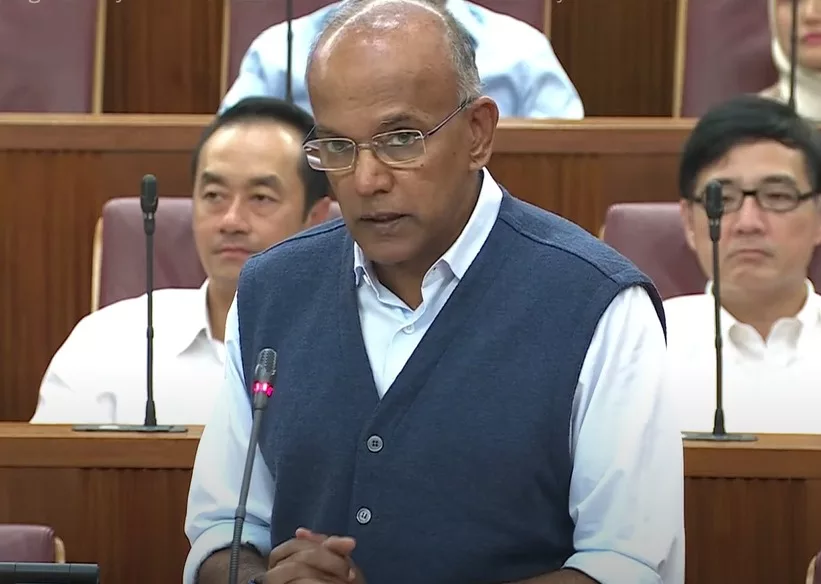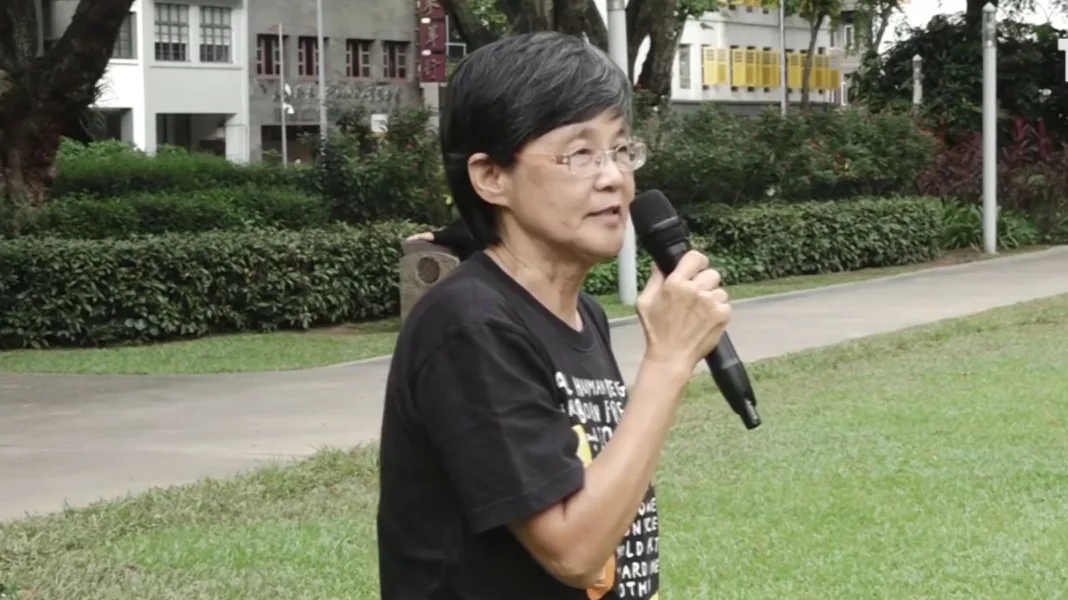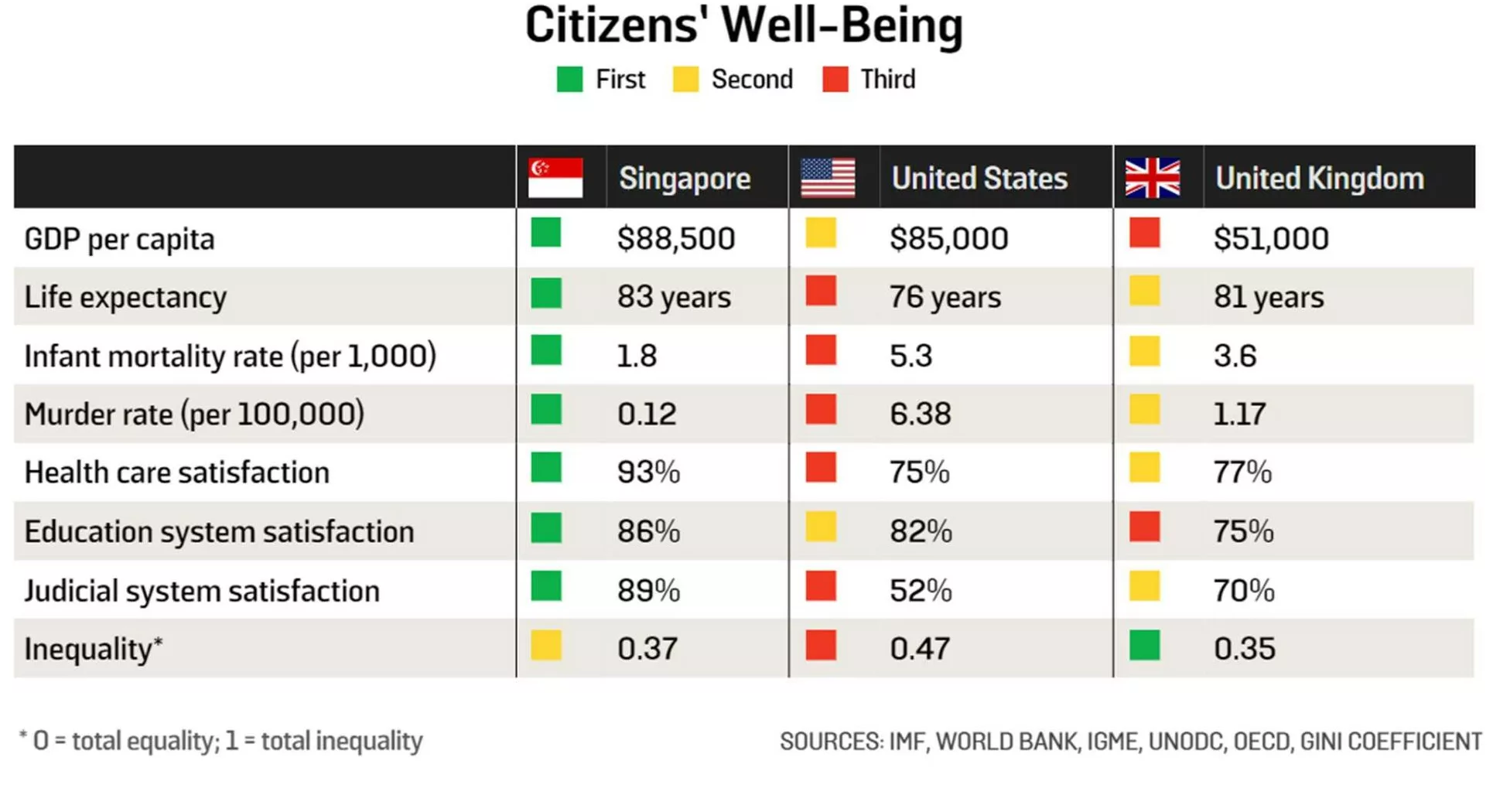Singapore Home Affairs and Law Minister K Shanmugam has called out political activist Teo Soh Lung on her advice to him “on how to deal with young people”. He has also emphasised that ignoring law-breaking by young people “sets a bad precedent”.

Teo, a lawyer and activist, had been imprisoned in Singapore for two years in the late 1980s under the Internal Security Act (ISA) for her alleged role in an anti-government conspiracy. She has had repeated run-ins with the Singapore Ministry of Home Affairs (MHA).
Last month, just days after Shanmugam gave a very detailed ministerial statement in Parliament about the anti-narcotics measures undertaken by Singapore, citing data and case studies, Teo claimed on social media that the “problem of drug abuse and drug trafficking has not been solved” by the Singapore Government.
In response, the MHA said: “The drug problem cannot be permanently ‘solved’, as Ms Teo seems to suggest. There will be people who will abuse drugs. What we can do is to try and reduce the number, and save as many lives as we can. If we go soft on drugs, the consequences will likely be very bad, with a lot more suffering and deaths.”
This week, the activist and the minister are again at loggerheads.

On Thursday, Shanmugam wrote on Facebook: “Ms Teo has given me some advice on how to deal with young people, that I (and other Ministers) should listen to young people. That I should have but did not meet some young people who turned up to deliver a Petition at my Ministry. Instead they are facing investigations.
“Ms Teo, is wrong in her facts and assumptions.
“First, I was not in Singapore when the Petition was presented at my Ministry. And I could not have met the Petitioners even if I had wanted to.
“Second, I meet thousands of young people every year, in different settings – often in dialogues where we have mutually respectful discussions. A glance at my social media pages would show that. All of us are very aware of the importance of listening to all our people – the young, as well as the not so young.
“Third, on the investigations – as most people are aware, if laws are broken, in Singapore, there can be consequences.
“Ms Teo, who is legally qualified, should know that. To suggest that law-breaking (if there was any law-breaking) should be ignored because the persons involved were young is in principle wrong. And it sets a bad precedent.”
Shanmugam pointed out in his post: “There are many perfectly legal ways in which opinions can be expressed and Petitions presented in Singapore. Without breaking laws.”
Slamming the friction caused by the activist, the minister wrote: “Ms Teo and a few others take every opportunity to repeat the same old tired tropes, even though they should know that much of what they say is false: Government and Ministers don’t listen; We don’t speak with young people; Our policies are outdated; We think we are answerable to no one. And on and on.”
The minister invited her to closely observe how the Singapore Government functioned: “Ms Teo should sit in on the dialogues we have. Look carefully at our policies. See how the majority of our people have been progressing. Understand why Singapore is considered one of the best governed states in the world.”

Posting a chart on the metrics of citizens’ well-being, Shanmugam wrote: “We haven’t gotten our excellent safety record, low homicides, low crime by accident. Nor by ignoring deliberate law-breaking. The advice that she gives (let people break the law if they are young) will inevitably lead to protests of a much more violent and intemperate nature that we see in some other countries. Singaporeans in a large measure do not want that.”


